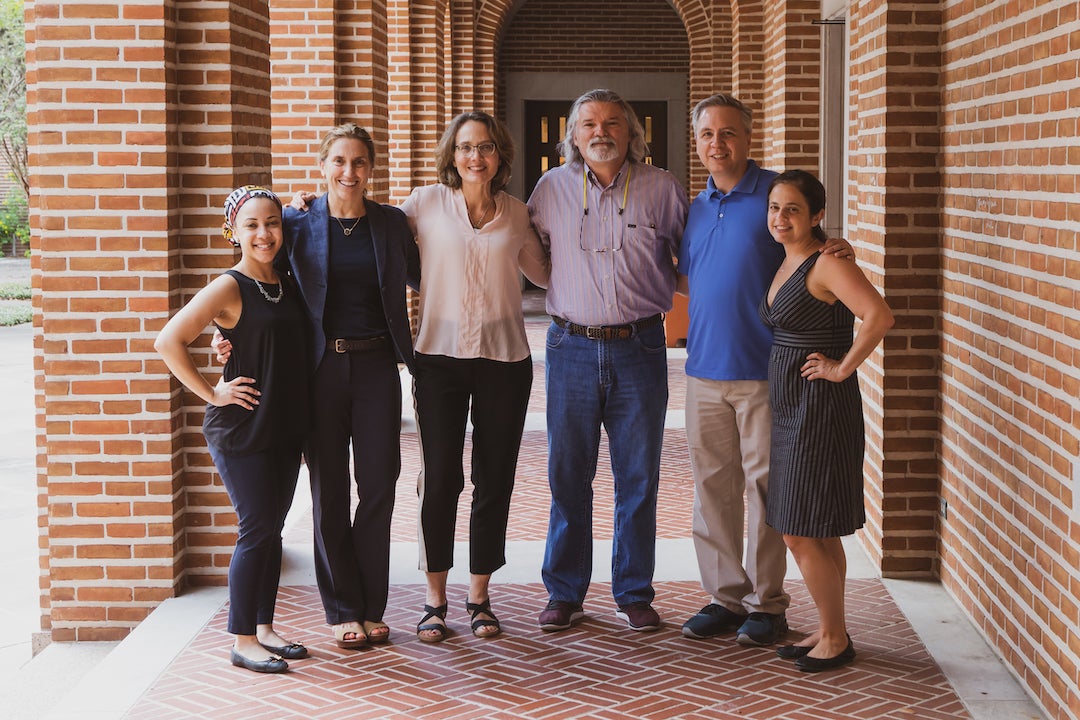Earlier this year, Rice University’s graduate program in industrial organizational psychology was ranked No. 1 in the nation by U.S. News and World Report .
The top ranking comes as no surprise to the faculty, students and alumni affiliated with the program, long known for excellence in the field of I-O psychology, the scientific study of human behavior in organizations and the workplace.
"I am so proud of the world-class scholars in our I/O Psychology program who bring such energy and skill to their work," said Rice Dean of Social Sciences Rachel Kimbro. "This is a well-deserved recognition!"

“The I-O program is an undiscovered diamond at Rice,” said Eduardo Salas, department chair and I-O professor of psychological sciences. “Just look at the accomplishments of the faculty from national scholarly lifetime achievement awards to national teaching awards winners. Our faculty and graduate students conduct impactful research on a range of issues, including diversity and inclusion, resilience in organizations, employee training and testing, team science, safety, the aging workforce and artificial intelligence in the workplace. Our expertise is sought out worldwide.”
Rice I-O psychological sciences faculty include three past presidents of the Society for Industrial and Organizational Psychology and five fellows of the organization. They have authored books, won numerous teaching, mentoring and research awards, and received millions of dollars in grant funding.
“In short, they’re exactly what you would expect in the No. 1-ranked program in this discipline,” Salas said.
Perhaps the biggest indicators of the program’s success are its alumni, who have flourished in fields ranging from academia to health care to aerospace.
Eden King, the Lynette S. Autrey Professor of Psychology and graduate of Rice with a bachelor’s degree and Ph.D. in psychological sciences, was attracted to Rice’s culture before attending as an undergraduate. She returned for graduate school because of the chance to work with Mikki Hebl, the Martha and Henry Malcolm Lovett Chair of Psychology, to address meaningful questions about prejudice and discrimination at work.
“I definitely had a competitive edge because of the mentorship I received,” King said, recalling professors who stopped at nothing to make sure she was prepared for entering the workforce. “The faculty at Rice helped make sure that I had the knowledge, skills and scholarly evidence to propel me forward in my career.”
Stephanie Zajac, a leadership practitioner at MD Anderson Cancer Center, picked Rice and the Department of Psychological Sciences because she was seeking a smaller, more personal environment for grad school.
“In the grad school rankings, the culture at Rice was mentioned as something that really drew students there, and I could tell when I visited that it was very supportive and collegial. Both the students and the professors were warm and inviting,” she said. “Also, Rice overall is an amazing university with a very good reputation in the field.”
Zajac said the program’s rigor, in combination with professors who were truly invested in her success, helped her determine her career direction and find success in this field.
“Whatever your goals are, they are invested in helping you get there,” she said. “I still have a great relationship with our I-O professors and have worked with many of them throughout my professional career.”
Like King and Zajac, Kelly Goff, currently senior director of talent strategy for Blue Origin, came to Rice because of the I-O program’s quality, support of graduate students and the reputation of the university overall — as well as its central location in Houston. She is responsible for workforce planning, compensation, talent management, talent analytics and employer branding for her company, which is working to enable a future where millions of people are living and working in space for the benefit of Earth.
“It was important to me to select a program that was supportive of not only the academic research, but the practical application in the real world,” she said. “I knew before grad school that I wanted to use my education by applying research-backed solutions within companies. Rice provided that balanced approach — strong academics coupled with industry connections.”
Goff said Rice’s affiliation with a variety of organizations provided a pathway to practical work experiences in the Texas Medical Center and an internship at NASA.
“Rice’s I-O program provided a very strong foundation in how to do research — identify a problem, investigate, understand relevant research in the field, experimentation, statistical analysis and writing,” she said. “My success in my career is largely due to these skills applied to a variety of problems. Knowing how to do research has given me the ability to tackle any problem, especially new ones, and work through them successfully.”
More information on Rice’s Department of Psychological Sciences is available online at https://psychology.rice.edu.

